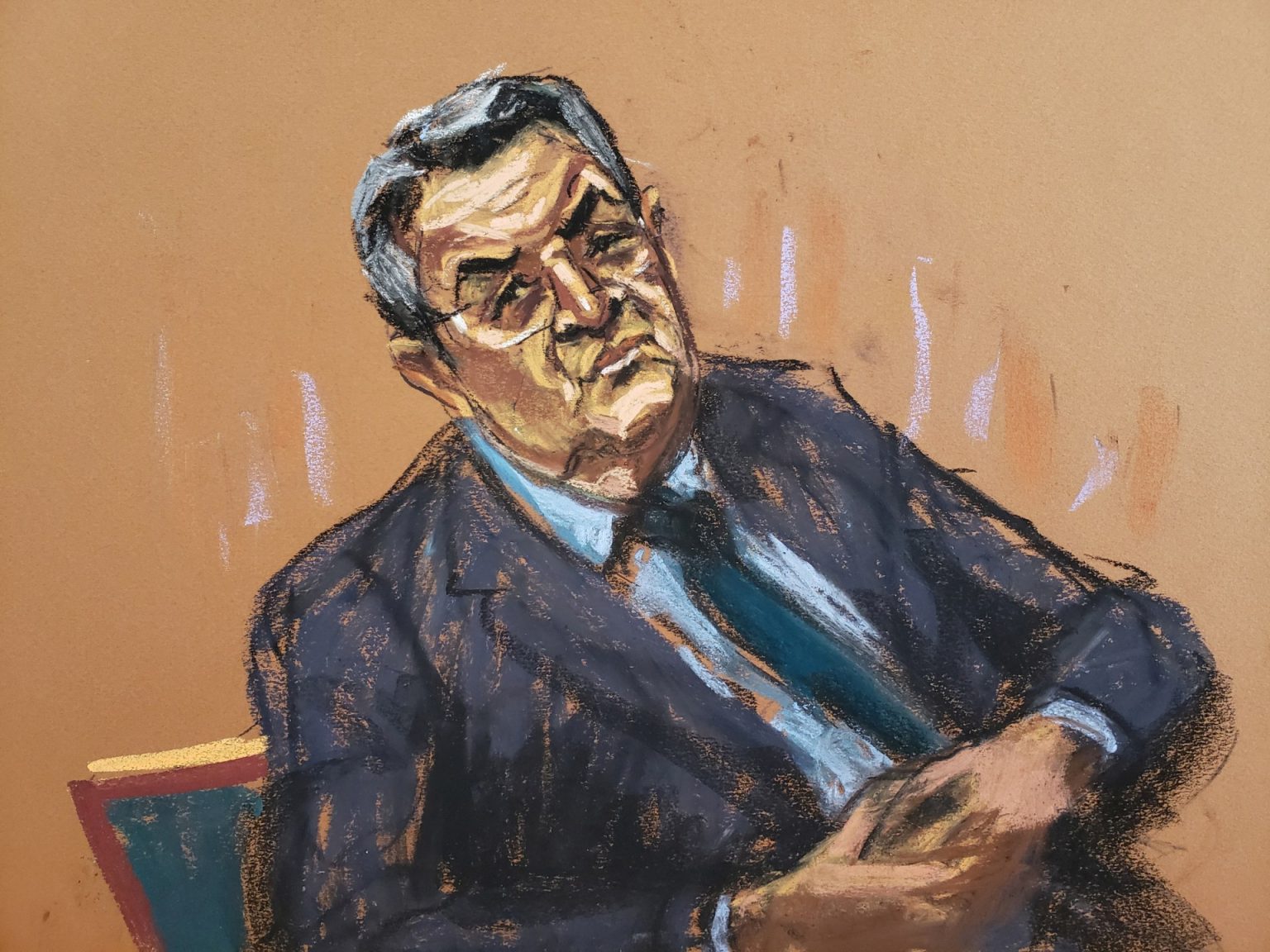Former President of Honduras, Juan Orlando Hernandez, has been sentenced to 45 years in prison on drugs and weapons charges after being found guilty of accepting bribes to protect US-bound cocaine shipments. The sentencing took place in a Manhattan courtroom where Juan Orlando Hernandez maintained his innocence, claiming he was wrongly accused. This conviction has been seen as a rare instance of accountability for corruption within the ruling class of Honduras, with many Hondurans celebrating the outcome.
The jury’s decision in March revealed that Hernandez had taken millions of dollars in bribes to shield cocaine shipments destined for the US, showcasing the extent of corruption within his administration. Prosecutors had pushed for a life sentence to send a strong message to other politicians who misuse their power to aid criminal groups. Throughout the trial, evidence was presented that Hernandez had used drug money to manipulate voting results during presidential elections in 2013 and 2017, showcasing the depth of corruption within his administration.
During his defence, Juan Orlando Hernandez denied taking bribes from drug cartels, insisting that he had never engaged in such criminal activities. His legal team argued that the convicted traffickers who testified against him were seeking revenge for his anti-drug policies. However, the testimonies given by these traffickers played a crucial role in securing his conviction, revealing the deep ties between Hernandez and criminal organizations. His brother, Tony Hernandez, had previously been sentenced to life in prison on drug charges in the US.
The sentencing of Juan Orlando Hernandez has significant implications for Honduras and its political landscape. Once seen as a key US ally, Hernandez’s fall from grace highlights the extent of corruption within the country’s ruling elite and the need for accountability. The conviction has been celebrated by many Hondurans who view it as a step towards addressing systemic corruption within the government. The case has also raised questions about the effectiveness of anti-drug policies and the extent to which they can be compromised by high-ranking officials.
US District Judge Kevin Castel, who presided over the case, handed down the sentence, underscoring the seriousness of the charges against Hernandez and the need for justice to be served. The sentencing marks the end of a long legal battle for Hernandez, who had vocally proclaimed his commitment to combating drug trafficking during his time in office. Despite his declarations of innocence, the evidence presented in court painted a damning picture of his involvement in criminal activities, leading to his conviction and sentencing.
The case of Juan Orlando Hernandez serves as a cautionary tale for those in positions of power who may be tempted to abuse their authority for personal gain. The sentence handed down to Hernandez sends a stark message that corruption and collusion with criminal organizations will not be tolerated, regardless of one’s status or political position. The impact of this conviction on Honduras and its political future remains to be seen, but it serves as a reminder of the importance of upholding the rule of law and holding those in power accountable for their actions.


